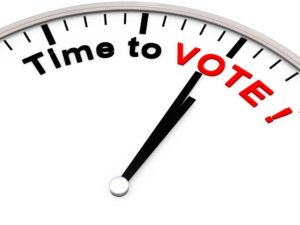Effective January 1, 2020, Illinois will be joining 11 other States to legalize recreational marijuana. Under the Cannabis Regulation and Tax Act (the “Act”), adults (21+) will be allowed to possess and consume certain amounts of marijuana (30 grams). There are limitations on where this use and consumption can take place and this article is only intended to deal with the impact of such use and consumption in the workplace. (One primary warning, while a State may decriminalize certain marijuana use, remember, that it is still illegal under Federal Law.)
Before you go light up on the way to work, or worse, during work, understand that the Act expressly permits employers to enforce a “zero tolerance” policy for cannabis and does not require an employer to permit an employee to be under the influence of cannabis in the workplace or while performing job duties while on call. The big challenge for an employer will be to identify when an employee is under the influence of cannabis while at work.
According to the Act, an employer may consider an employee to be “impaired” or under the influence of marijuana if the employer has a “good faith belief” that an employee:
- manifests specific, articulable symptoms while working that decrease or lessen the employee’s performance of his/her duties or tasks, including symptoms of the employee’s speech, physical dexterity, agility, coordination demeanor, irrational or unusual behavior or negligence/carelessness in operating equipment or machinery.
- Demonstrates a disregard for the safety of one’s self or others, or involvement of any accident that results in damages to equipment or property;
- Creates a disruption of a production or manufacturing process or carelessness that results in injury to the employee or other.
In the event that an employer decides to discipline an employee for being under the influence of marijuana at work the Act requires that the employer offer the employee a reasonable opportunity to contest the basis of the determination. The employer may then make a final determination on whether to issue discipline once the employee provides an explanation but the employer must still have a “good faith belief” that the employee reported to work under the influence if the employer decides to discipline. The problem for employers will be that cannabis is detectible in a person long after the consuming individual is impacted by the substance, which makes drug testing an unreliable mechanism for detecting inappropriate marijuana use for current employees.
Overlaying all of this is the Illinois Right to Privacy Act which prohibits employers from restricting employees from using legal products outside of work. The Act expressly included recreational marijuana in the list of covered products. To that end, drug testing for prospective employees even more problematic because a prospective employee may have used recreational marijuana outside the workplace as permitted yet show a positive drug test. Taking action, (i.e. refusal to hire, with no evidence of impairment) under these circumstances may subject an employer to liability.
Interestingly, the Act neither diminishes nor enhances the protections afforded to registered patients under the medical cannabis and opioid pilot programs. Keep in mind that the underlying medical condition is likely an ADA covered disability.
So what should employers do to diminish legal risks in the workplace?
- Get educated and review all policies and practices that touch on ensuring a safe workplace. Assess workplace cannabis tolerance in general and implement policies that can be enforced consistently among similarly situated employees.
- Ensure managers and supervisors are trained and capable in enforcing the policies consistently. Remember, exceptions and favoritism lead to discrimination claims.
- Clearly communicate management’s position especially where there is a shift in current policy or practice. Educate employees on the effect of lawful and unlawful policies regarding marijuana.
- Finally, engage competent legal counsel, such as Boznos Law, to assist in the process and address difficult situations before they become problematic.
With over 34 years’ experience in advising employers and employees on workplace issues, let Boznos Law work with you to ensure you are ready to meet the challenges posed by the changes to the employment laws. Call Bill Boznos today at (630) 375-1958 or contact us at www.boznoslawoffice.com/contact-us through our website.



